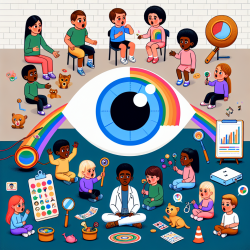Helping Kids Succeed: Insights from Recent Research on Nicotine Perceptions
As a speech-language pathologist passionate about data-driven decisions and creating great outcomes for children, I’m always on the lookout for research that can inform and improve our practices. Today, I want to discuss a study that, while focused on smoking cessation, offers valuable insights that can be applied to our work in online therapy services, especially in schools.
The study, titled “Do Smokers’ Perceptions of the Harmfulness of Nicotine Replacement Therapy and Nicotine Vaping Products as Compared to Cigarettes Influence Their Use as an Aid for Smoking Cessation? Findings from the ITC Four Country Smoking and Vaping Surveys”, provides compelling evidence on how perceptions influence behavior. The findings underscore the importance of accurate information and how it can shape decisions and outcomes.
Key Findings from the Research
The study analyzed data from 1,315 daily smokers who attempted to quit smoking. It revealed that smokers who perceived nicotine replacement therapy (NRT) and nicotine vaping products (NVPs) as less harmful than cigarettes were significantly more likely to use these aids during their quit attempts. Specifically:
- Smokers who viewed NRT as much less harmful than cigarettes were nearly four times more likely to use NRT during their quit attempts.
- Those who saw NVPs as much less harmful were twice as likely to use them.
- Interestingly, those who perceived NVPs as much less harmful were less likely to use NRT.
The study highlights that misperceptions about the relative harmfulness of nicotine products can deter their use as cessation aids. This has significant implications for how we educate and inform our clients and their families.
Applying These Insights to Online Therapy Services
While the study focuses on smoking cessation, the underlying principle of the importance of accurate information is universally applicable. In our work with children, particularly in online therapy settings, we can draw several parallels:
- Education and Communication: Just as smokers benefit from accurate information about nicotine products, children and their families benefit from clear, accurate information about speech and language therapy. Ensuring that families understand the benefits and safety of online therapy can improve engagement and outcomes.
- Perception Management: Addressing any misconceptions families might have about online therapy is crucial. By providing evidence-based information, we can help them make informed decisions that support their child’s progress.
- Data-Driven Decisions: Like the researchers who used data to understand the impact of perceptions on behavior, we can use data to tailor our therapy approaches. Regularly collecting and analyzing data on therapy outcomes can help us refine our methods and better meet the needs of each child.
Encouraging Further Research
This study also serves as a reminder of the importance of ongoing research. As practitioners, we should not only stay informed about the latest studies but also consider contributing to the body of research. By doing so, we can continually improve our practices and outcomes for the children we serve.
To read the original research paper, please follow this link: Do Smokers’ Perceptions of the Harmfulness of Nicotine Replacement Therapy and Nicotine Vaping Products as Compared to Cigarettes Influence Their Use as an Aid for Smoking Cessation? Findings from the ITC Four Country Smoking and Vaping Surveys.
In conclusion, accurate information and data-driven decisions are key to improving outcomes, whether in smoking cessation or speech-language therapy. By applying these principles, we can help children succeed and thrive.










